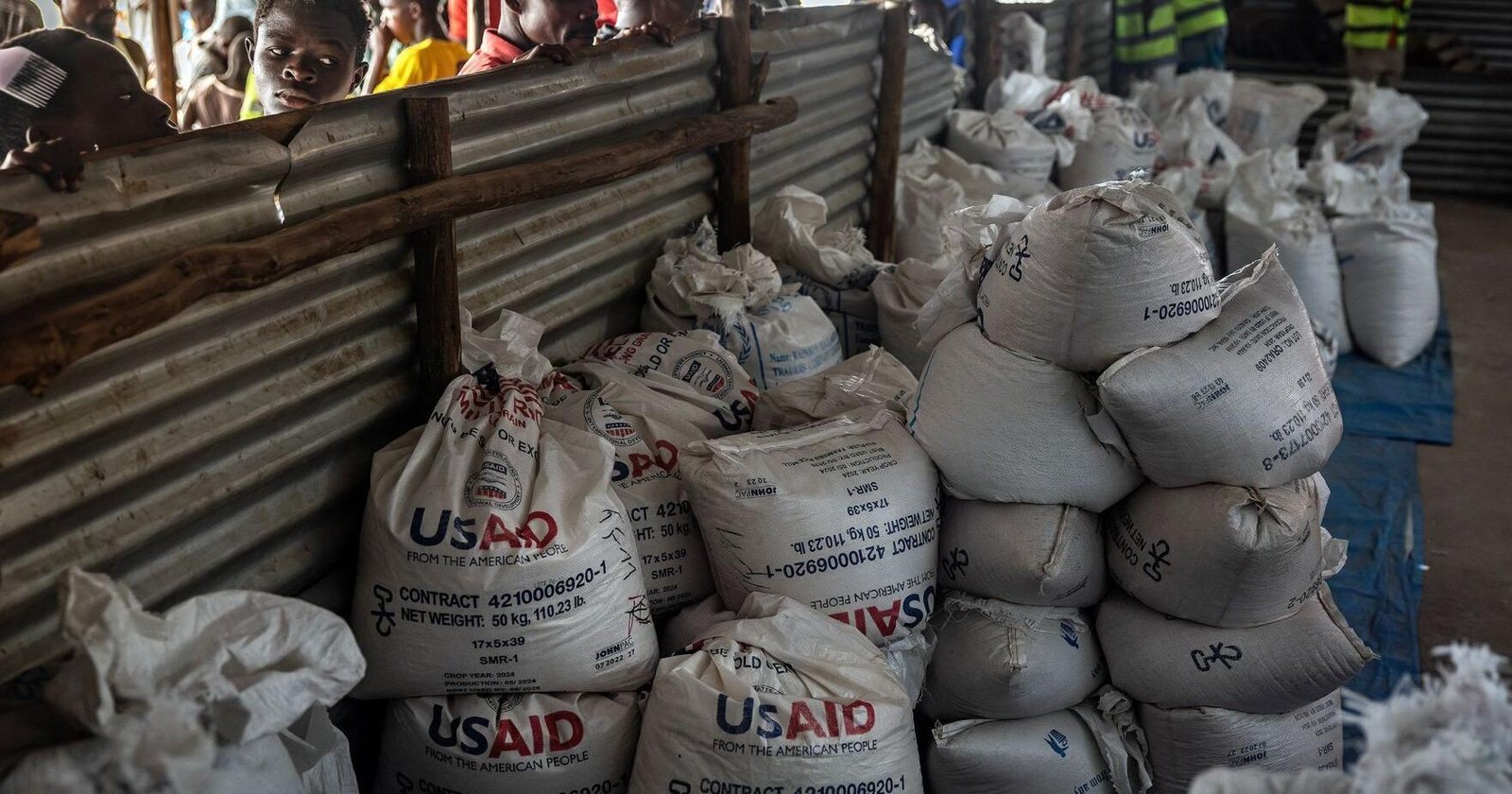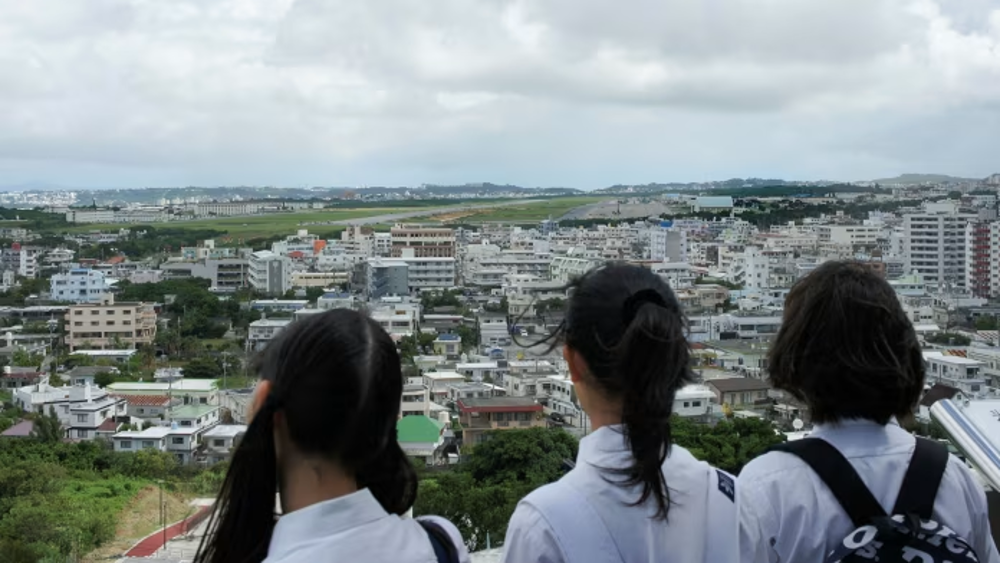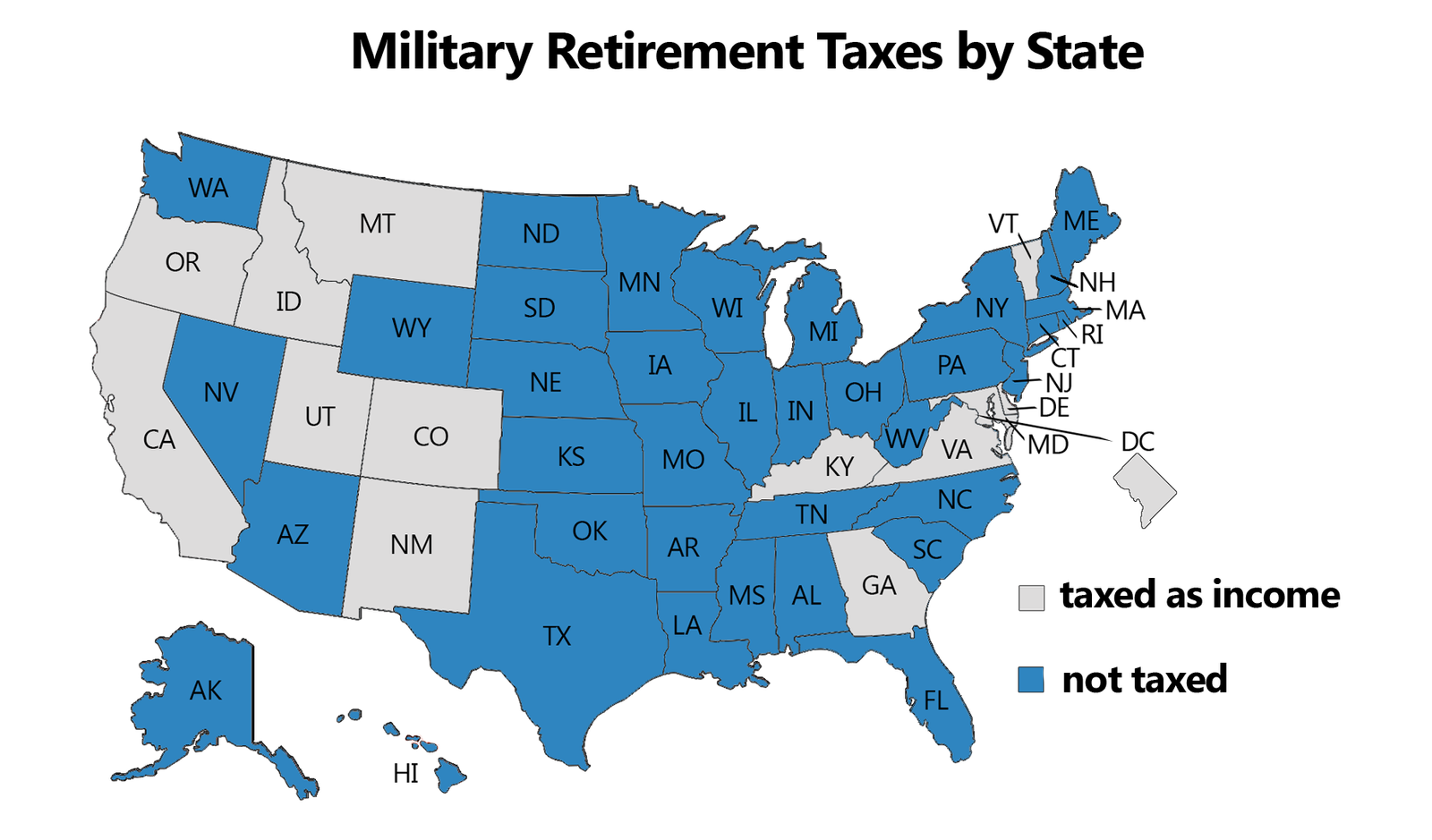Get opinion pieces, letters and editorials sent directly to your inbox weekly!
E-edition PLUS unlimited articles & videos
Personalized news alerts with our mobile app
*FREE access to newspapers.com archives
Hundreds of games, puzzles & comics online
*Refers to the latest 2 years of stltoday.com stories. Cancel anytime.
Congolese refugees look through a corrugated metal fence at the final batches of food delivered by the now-dismantled United States Agency for International Development (USAID) in a storage and food delivery area at the Musenyi refugee site May 7 in Giharo.
On the evening of July 26, 1953 — 72 years ago this weekend — Americans received great news as President Dwight Eisenhower announced the signing of the Armistice ending the fighting of the Korean War. This brutal three-year conflict saw American soldiers suffer tens of thousands of casualties helping South Korea and UN forces fight against Communist North Korea and China. The Armistice officially took effect on July 27, 1953.
At the end of Eisenhower’s Armistice speech to the nation he invoked President Abraham Lincoln’s words “With malice toward none, with charity for all.”
This was more than just talk. Eisenhower immediately authorized a charity mission with U.S. planes, ships and trains bringing food to starving South Koreans. As reported in The Washington Post, “United States Air Force planes were delivering thousands of Army C-Rations to Seoul, and ships brought 5000 tons of rice and other foodstuffs to other cities. Still other food shipments were on the way by rail from Army depots at Pusan to towns in South Korea.”
The fighting was over in Korea, but the damage was so severe that the enemies of hunger and poverty were far from defeated. Hunger is the evil aftermath of war that can last for years.
That’s as true now as it was then. Yet the Trump administration is severely cutting global U.S. food aid where it’s needed most, risking both innocent lives and American influence.
What enabled South Korea to overcome the enemy of hunger after the Armistice was U.S. food aid. Eisenhower’s armistice food mission was just the beginning. More aid followed including from the “Food for Peace” program which was started by Eisenhower in 1954.
Think of the millions of children in South Korea that got lunches and milk at school because of U.S. Food for Peace. Think of the families that got emergency food rations after natural disasters because of Food for Peace. Without this aid victims would have fallen deeper into post war hunger. Think of the farms in South Korea that were rehabilitated by Food for Peace. These were all essential to the recovery of South Korea from the war.
It’s important to remember that U.S. aid programs like Food for Peace can make a powerful difference. But only if we use them. It’s been sad to see U.S. food aid cut back by the Trump administration at a time when it’s desperately needed with multiple wars and droughts worldwide. We need more Food for Peace, not less.
President Eisenhower understood the importance of feeding the hungry in our quest for peace. Why can’t our leaders understand this today?
You cannot build peace anywhere in the globe if people are suffering in hunger and poverty. Hunger leads to all kinds of instability and chaos. How can people rebuild from war if they are starving? How can children grow up if they are stunted from malnutrition?
Peace and stability don’t emerge overnight. You have to do the hard work of waging peace and this includes feeding the hungry and building food security for nations.
Today there is severe hunger taking place in Sudan, Gaza, Congo, South Sudan, Haiti, Mali, Yemen and many other nations. Food is needed in these nations to save lives, build peace and encourage reconstruction. But aid agencies helping these nations are facing major funding shortfalls because the U.S. has cut funding and closed down the U.S. Agency for International Development (USAID).
Food aid is such a relatively small part of the budget. Cutting it does not save money but it does cost lives. Peace hopes are shattered without food.
Congress and the Trump administration need to work to restore U.S. food aid and start increasing the funding. Millions of lives hang in the balance. Peace hangs in the balance.
America’s strength is far more than just showing military might. It’s about showing compassion for starving children, not ignoring them. We can’t lose what makes America a great nation.
As we remember the Korean War Armistice and the sacrifices our soldiers made to save freedom, let’s also remember our life-saving food aid. For it was U.S. Food for Peace that helped South Korea recover from the brutal war. Food is just as important to war victims around the globe today.
William Lambers is an author who partnered with the UN World Food Program on the book “Ending World Hunger.”
Get opinion pieces, letters and editorials sent directly to your inbox weekly!
It is an incredibly sad day when an 82-year-old woman who survived the Holocaust died for being Jewish in America in 2025.
The political right is giddy over the cancellation of “The Late Show With Stephen Colbert.”
Fewer American women are married and more women are anxious and depressed. So many are uncoupled and unmarried. Did feminism lead American wom…
As Catholics, we are taught to see the face of Christ in the suffering of the imprisoned, the migrant child, the asylum seeker chained and voi…
A 2023 complaint filed by Missouri, Louisiana, and other individual plaintiffs against the Biden administration argued that executive branch o…
Congolese refugees look through a corrugated metal fence at the final batches of food delivered by the now-dismantled United States Agency for International Development (USAID) in a storage and food delivery area at the Musenyi refugee site May 7 in Giharo.
Get up-to-the-minute news sent straight to your device.
Opinion: Ike knew that food spurs peace. Why are we forgetting that? – STLtoday.com



